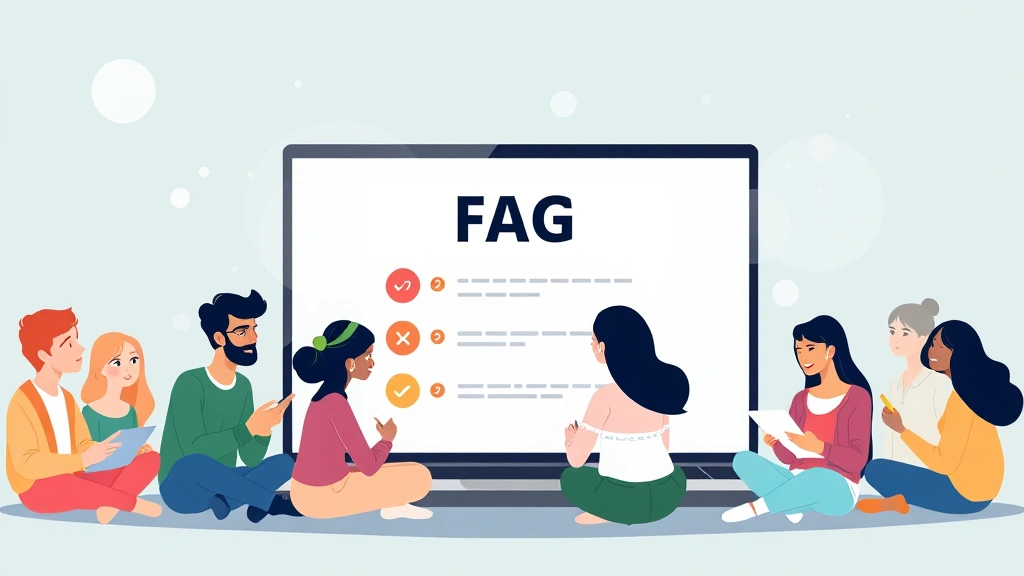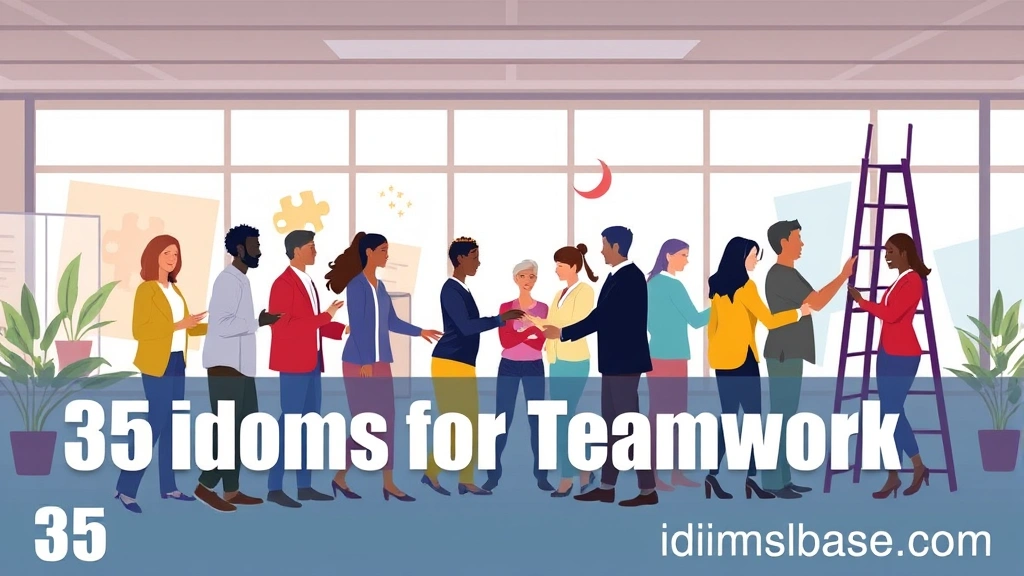Welcome, wonderful reader! Have you ever felt that magic moment when a group of people just clicks? When everyone’s efforts blend seamlessly, and something amazing is created that no single person could have achieved alone? That, my friends, is the power of teamwork! It’s not just a buzzword; it’s the secret sauce to success, happiness, and innovation in every corner of our lives, from the boardroom to the backyard barbecue.
Today, we’re diving headfirst into the fascinating world of idioms – those quirky phrases that don't mean exactly what they say but add so much color and depth to our language. And guess what? English is absolutely overflowing with fantastic idioms that perfectly capture the spirit of collaboration, partnership, and working together.
Why are idioms important, you ask? Well, they’re like linguistic shortcuts! They convey complex ideas in a memorable, often witty way. Plus, using them correctly makes you sound like a true language pro, someone who understands the nuances of communication. So, whether you're leading a team, joining a new project, or just want to spice up your conversations, understanding these 35 idioms about teamwork will be a game-changer for you. Let's jump in!
35 Teamwork Idioms That Hit the Nail on the Head
Get ready to supercharge your vocabulary and celebrate the power of working together!
- All Hands on Deck: This means everyone needs to help, especially during a busy or difficult time. Imagine a ship in a storm – everyone pitches in!
- To Pull Your Weight: To do your fair share of the work. Nobody likes a slacker, right?
- To Be on the Same Page: To agree about something or have the same understanding. Essential for smooth operations!
- To Row in the Same Boat: To be in the same difficult situation as others. It implies shared challenges and shared effort to overcome them.
- To Put Our Heads Together: To work together to solve a problem or come up with an idea. Brainstorming, anyone?
- To Go the Extra Mile: To do more than what is expected or required. A true team player always does!
- To Be a Team Player: Someone who works well with others and puts the team's success before their own.
- To Pass the Baton: To hand over responsibility or a task to another person in a continuous effort. Like in a relay race!
- To Carry the Ball: To be responsible for a particular task or project.
- To Play Ball: To cooperate or agree to participate. "Are you going to play ball with our new idea?"
- To Get Our Act Together: To organize ourselves and work more effectively.
- To Be in Cahoots: To be secretly working together, often for a dubious purpose. (More often used negatively, but can imply strong, secret teamwork!)
- To Shoulder the Burden: To take on a difficult responsibility or problem.
- To Chip In: To contribute money, help, or effort to a common cause.
- To Cover All Bases: To deal with all aspects of a situation, leaving nothing to chance. Requires thorough teamwork!
- To Put Your Spin on It: To give your own particular interpretation or approach to something. Teamwork thrives on diverse perspectives!
- To Build Bridges: To improve relationships between people or groups.
- To Form a United Front: To present a common position or opinion, especially in opposition to someone or something else.
- To Have a Finger in Every Pie: To be involved in many different activities or projects. Can be good for coordination, but also implies spreading oneself thin.
- To Keep Your Eye on the Ball: To stay focused on the main goal. Easy to do when everyone is aligned.
- To Break the Ice: To start a conversation in a social setting, often by making people feel more relaxed. Good for new teams!
- To Clear the Air: To resolve a disagreement or misunderstanding. Essential for healthy team dynamics.
- To Get Your Ducks in a Row: To get everything organized and prepared. Preparatory teamwork!
- To Hit the Ground Running: To start a new activity quickly and effectively. A well-prepared team can do this!
- To Iron Out the Kinks: To resolve small problems or difficulties.
- To Learn the Ropes: To learn how to do a particular job or task. New team members need to do this!
- To Be on the Ball: To be alert, quick to understand, and responsive.
- To Pull Together: To work together for a common purpose. The essence of teamwork!
- To Rally Around: To gather together to support a common cause or person.
- To Stand Shoulder to Shoulder: To stand together in support of each other.
- To Be in Sync: To be in perfect agreement or coordination.
- To Have Each Other's Back: To support and protect one another. The ultimate sign of trust in a team.
- To Brainstorm (literally): To come up with many ideas quickly, often in a group.
- To Lift Each Other Up: To encourage and support one another, especially when someone is struggling.
- To Work Hand in Glove: To work very closely together, often with a shared purpose.
Frequently Asked Questions (FAQs)

Q1: Why should I use idioms in my communication about teamwork?
Using idioms makes your language more colorful, engaging, and memorable! They convey complex ideas concisely and show that you have a good grasp of the language's nuances. Plus, they can make your conversations and writing more relatable and interesting. Think of them as linguistic spice!
Q2: Are these idioms appropriate for all professional settings?
Most of the idioms listed here are widely accepted in professional settings, especially in Western business cultures. However, it's always a good idea to consider your audience and the specific context. For example, "to be in cahoots" might carry a negative connotation and should be used carefully. When in doubt, stick to the more universally positive ones like "all hands on deck" or "on the same page."
Q3: How can I remember all these idioms?
The best way to remember idioms is to use them! Try incorporating one or two new idioms into your conversations or writing each week. You can also create flashcards, practice explaining their meanings to a friend, or even try to spot them in movies or books. The more you encounter and use them, the more naturally they'll stick.
Q4: Do idioms about teamwork vary across different cultures?
Absolutely! While the concept of teamwork is universal, the specific idioms used to describe it can vary significantly from one language or culture to another. The idioms listed here are primarily common in English-speaking contexts. Learning local idioms is a fantastic way to deepen your understanding and connection with people from different backgrounds.

Q5: Can using too many idioms be a bad thing?
Yes, moderation is key! Overusing idioms can make your communication sound forced, unclear, or even confusing, especially if your audience isn't familiar with them. Aim for a natural flow, using idioms to enhance your message, not to dominate it. Think of them as sprinkles on a cupcake – delightful in moderation, overwhelming in excess!
Key Takeaways
Wow, what a journey through the world of teamwork idioms! You’ve just equipped yourself with a fantastic toolkit of phrases that celebrate collaboration, cooperation, and collective success. Remember these key points:
- Idioms add flavor: They make your language more vivid and engaging.
- They convey complex ideas simply: A quick idiom can communicate a lot!
- They show cultural fluency: Using idioms correctly demonstrates a deeper understanding of English.
- Teamwork is universal: While idioms vary, the core idea of working together for a common goal is celebrated worldwide.
- Practice makes perfect: The more you use these idioms, the more comfortable and natural you’ll become with them.
So, go forth and embrace the power of teamwork, not just in your actions but in your words too! Start using these idioms today, and watch how your communication transforms. Which one is your favorite? Do you have another teamwork idiom that you love? Share your thoughts and let’s keep the conversation going! After all, we’re all in this together, right?







